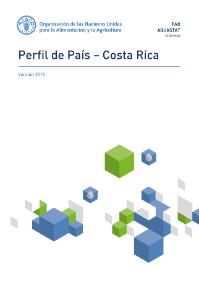Focal point
Location
The Food and Agriculture Organization of the United Nations leads international efforts to defeat hunger. Serving both developed and developing countries, FAO acts as a neutral forum where all nations meet as equals to negotiate agreements and debate policy. FAO is also a source of knowledge and information. We help developing countries and countries in transition modernize and improve agriculture, forestry and fisheries practices and ensure good nutrition for all. Since our founding in 1945, we have focused special attention on developing rural areas, home to 70 percent of the world's poor and hungry people.
Members:
Resources
Displaying 381 - 385 of 5074Perfil de País – Panamá
Este perfil de país describe el estado de los recursos hídricos y el uso del agua, así como el estado de la gestión del agua agrícola en Panamá. El objetivo de esta monografía es describir las particularidades del país y los problemas encontrados en el desarrollo de los recursos hídricos y el riego en particular.
Perfil de País – Costa Rica
Este perfil de país describe el estado de los recursos hídricos y el uso del agua, así como el estado de la gestión del agua agrícola en Costa Rica. El objetivo de esta monografía es describir las particularidades del país y los problemas encontrados en el desarrollo de los recursos hídricos y el riego en particular.
Report of the 21th Session of the African Forestry and Wildlife Commission (and the Fifth African Forestry and Wildlife Week)
La gobernanza responsable de la tenencia y el derecho: una guía para juristas y proveedores de servicios jurídicos
Esta guía técnica presenta un análisis de las dimensiones jurídicas de las Directrices voluntarias sobre la gobernanza responsable de la tenencia de la tierra, la pesca y los bosques en el contexto de la seguridad alimentaria nacional y su relación con el derecho internacional vinculante.
Country profile – Suriname
This country profile describes the state of the water resources and water use, as well as the state of agricultural water management in Suriname. The aim of this report is to describe the particularities of the country and the problems met in the development of the water resources, and irrigation in particular. Irrigation trends, existing policies and legislation to water use in agriculture, possible treaties and agreements between countries as well as prospects for water management in agriculture are presented, as described in literature.











